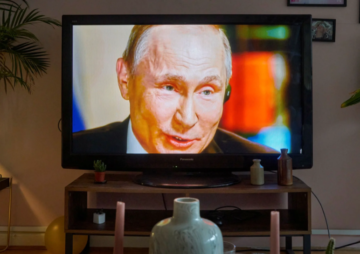 Francis Fukuyama in the Financial Times (photo by Harry Mitchell):
Francis Fukuyama in the Financial Times (photo by Harry Mitchell):
Liberalism is a doctrine, first enunciated in the 17th century, that seeks to control violence by lowering the sights of politics. It recognises that people will not agree on the most important things — such as which religion to follow — but that they need to tolerate fellow citizens with views different from their own.
It does this by respecting the equal rights and dignity of individuals, through a rule of law and constitutional government that checks and balances the powers of modern states. Among those rights are the rights to own property and to transact freely, which is why classical liberalism was strongly associated with high levels of economic growth and prosperity in the modern world. In addition, classical liberalism was typically associated with modern natural science, and the view that science could help us to understand and manipulate the external world to our own benefit.
Many of those foundations are now under attack. Populist conservatives intensely resent the open and diverse culture that thrives in liberal societies, and they long for a time when everyone professed the same religion and shared the same ethnicity. The liberal India of Gandhi and Nehru is being turned into an intolerant Hindu state by Narendra Modi, India’s prime minister; meanwhile in the US, white nationalism is openly celebrated within parts of the Republican party. Populists chafe at the restrictions imposed by law and constitutions: Donald Trump refused to accept the verdict of the 2020 election, and a violent mob tried to overturn it directly by storming the Capitol. Republicans, rather than condemning this power grab, have largely lined up behind Trump’s big lie.
More here.
